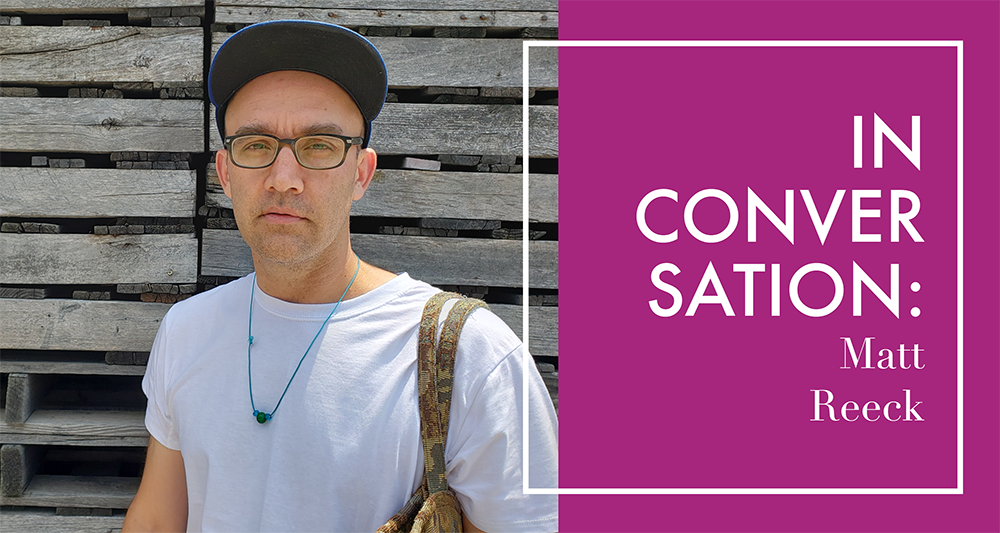Matt Reeck’s rich, sonically layered translation of Olivier Domerg’s psychogeographic writing, from Portrait of the Puy de Manse, was published in Asymptote’s January 2025 issue as part of its special feature on new forms. In the piece, we leap from prose to verse, stepping with each new utterance from alignment to alignment, just as the puy becomes a stream becomes another mountain. “Collapse: debris,” writes Domerg in Reeck’s precise, pensive hand. Does translation depend on a similar, geological rhythm of change? In this interview, Asymptote’s Senior Assistant Editor of Fiction Michelle Chan Schmidt speaks with Reeck about his translative art, the sonic aura of language and space, and the process of decolonising knowledge.
Michelle Chan Schmidt (MCS): In an interview with Asymptote from 2014—eleven years ago!—you state that your translation philosophy is ‘best left unexpressed’. Yet in a brilliant 2019 essay for Public Books, ‘Translation’s Burden’, you highlight what you call the ‘Hermeneutic Truth’, deconstructing the cliché of ‘semantic invariance’, or the so-called untranslatable element—apparently intrinsic to each text—that causes their translations to wither. How would you express your translation philosophy today? What role might ‘unnecessary original language words’ play in translated texts?
Matt Reeck (MR): First, I have to say that while I know people use the word ‘philosophy’ in this context, I tend to avoid it; why does everything have to have a philosophy when ‘practice’ would do, when intelligence and sensitivity would do? That word also tends to make ‘practice’ appear uniform and to regularise what is naturally variable. Even if there are guidelines, choices are always particular and individual. I think that means translation is an art and not a philosophy (and is not governed by a philosophy).
These days, I think about the role editors take. (Patrick Hersant has a great essay forthcoming called ‘The Third Hand’, translated by me (!), that talks about the role editors play in the publication of translations.) I think about any book’s birth as a collaboration. So many people are involved, and the relationship with editors can be good or bad. READ MORE…



 This spirit of formal ambition is by no means limited to our Special Feature. After all, “as the reality of each time changes,” says
This spirit of formal ambition is by no means limited to our Special Feature. After all, “as the reality of each time changes,” says